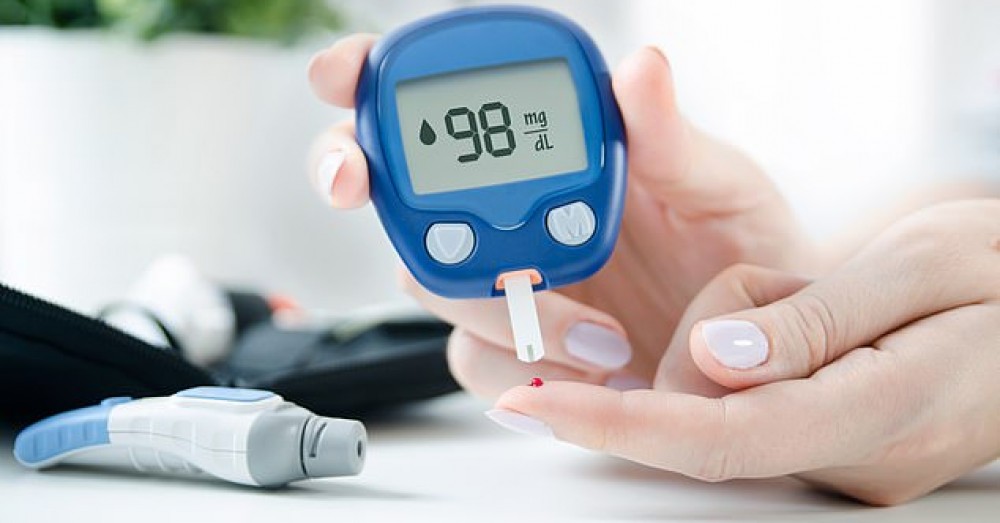Patients with Type 2 diabetes are twice as likely to die from coronavirus – and being obese increases the risk even further, research reveals today.
A third of deaths from the virus have occurred among individuals with diabetes, which is linked to excess weight and a lack of exercise.
The study by the NHS and Imperial College London also found that those with Type 1 diabetes –which is not linked to obesity – were three and a half times more likely to die.
The findings provide further evidence that certain groups of patients are at much higher risk of suffering fatal complications.
But they also suggest that lifestyle strongly influences someone’s susceptibility to the virus.
Lead researcher Professor Jonathan Valabhji, the NHS’s national clinical director for diabetes and obesity, analysed the deaths of 23,804 patients in England from coronavirus between March 1 and May 11.
Professor Valabhji, also a consultant diabetologist at Imperial College Hospitals, found that 31.4 per cent had Type 2 diabetes and 1.5 per cent had Type 1.
The study also found that patients with Type 2 diabetes doubled their risk again if they were severely obese, with a body mass index (BMI) above 40.
They were twice as likely to die than those patients with the condition who were in the overweight or normal category. Patients with Type 2 diabetes who also had high blood glucose levels because their condition was poorly controlled increased their risk of death by another 60 per cent.
Professor Valabhji said: ‘This research shows the extent of the risk of coronavirus for people with diabetes and the different risks for those with Type 1 and Type 2 diabetes. Importantly, it also shows that higher blood glucose levels and obesity further increase the risk in both types of diabetes.
‘This can be worrying news but we would like to reassure people that the NHS is here for anyone with concerns about diabetes – and has put extra measures in place to help people and keep them safe, including online sites to support people to care for themselves, digital consultations, and a dedicated new helpline for advice and support for people treated with insulin.’
The Government is carrying out a major review into whether obesity, ethnicity and gender increase their chances of dying or becoming severely ill with the virus.
The findings, which are due within the next few weeks, could influence whether these groups are given tailored advice regarding social distancing and working in non-frontline NHS roles.
At least 3.9 million Britons have diabetes and the number has doubled in the past 20 years in line with rising levels of obesity.
Up to 90 per cent have Type 2 which usually develops after the age of 40 but is being increasingly seen in children and teenagers.
Bridget Turner, director of policy at Diabetes UK, said: ‘This new data sheds much-needed light on which groups of people with diabetes are more likely to experience poor outcomes if they catch coronavirus.
It also shows that the risk of death for people with diabetes is higher than for people without the condition – with the risk for people with Type 1 being higher than for those with Type 2 – and that a history of higher blood sugar levels as well as obesity seem to be contributing factors.
‘It’s very important to remember that the risk of dying from coronavirus – for people with and without diabetes – remains very low, and that as cases of coronavirus decline, the risk to everyone of catching the disease will reduce in turn.’
Share This Post















